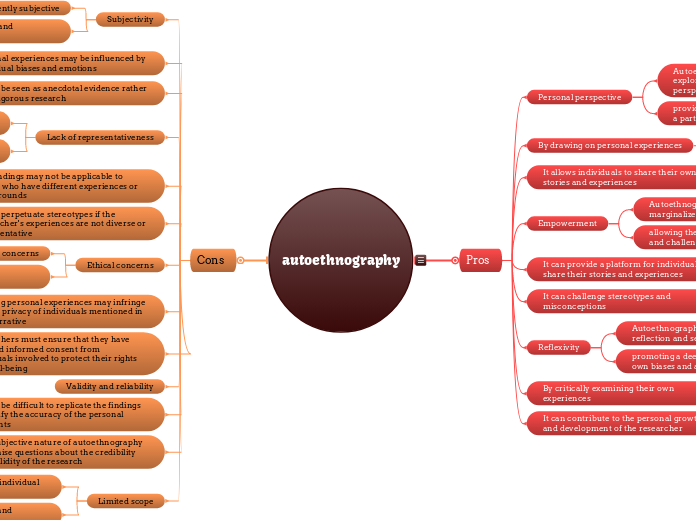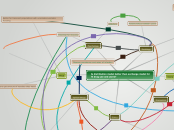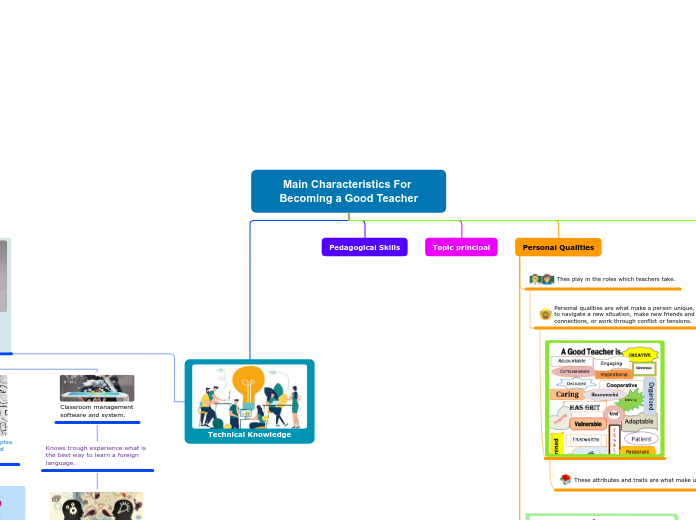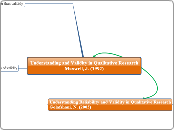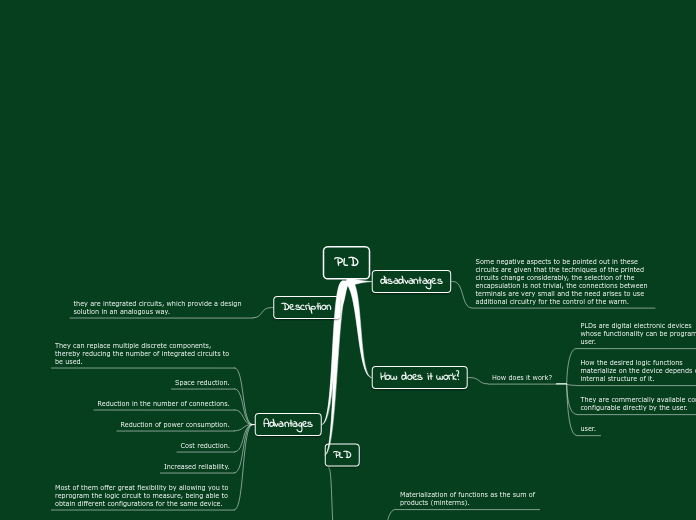von Steven Blythe Vor 1 Jahr
149
autoethnography
Autoethnography is a research method that emphasizes the analysis of personal experiences to explore cultural, social, or political phenomena. However, its inherently subjective nature often limits objectivity and generalizability, as it focuses on individual narratives rather than broader, systemic issues.
